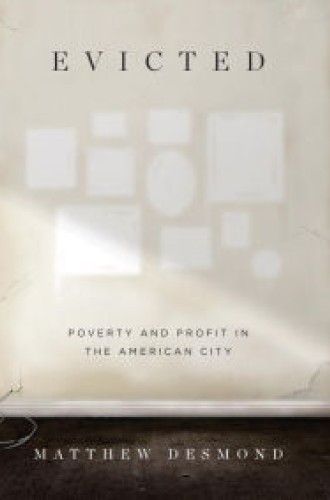Precarious housing
Around the corner from the after-school program in our neighborhood, Elrico gets off the bus at his grandma’s house. When he joined the program two years ago, he lived with his mom and sister, just across from grandma on Onslow Street. But they lost that place, so now he gets off at the same spot, does his homework at grandma’s, walks around the corner to the after-school program, and hops in the car with mom when she gets off work. When everything works right, Elrico has a pretty stable life here in Walltown. In the language of the local Baptist church, we call him “blessed.”
But the relative stability that makes Elrico a thriving young member of our community is counted as a blessing precisely because everyone here knows how precarious it is. Let the school find out that he has moved; let the car break down; let mom’s schedule change at work—and everything falls apart. Because even for the blessed in a place like Walltown, a stable home is not a given. As Harvard sociologist Matthew Desmond argues in his penetrating new book, “we have failed to appreciate how deeply housing is implicated in the creation of poverty. Not everyone living in a distressed neighborhood is associated with gang members, parole officers, employers, social workers or pastors. But nearly all of them have a landlord.” Even the blessed.
Read our latest issue or browse back issues.
Desmond knows this reality because he knows Arelene and Vanetta, Scott and Jori—not their real names, but real people he came to know while living in a trailer park and a rooming house in Milwaukee at the nadir of America’s Great Recession.
Evicted is a journalistic achievement that invites readers to get to know people who are most often either ignored or singled out as an example of some statistic. Breaking from the ethnographer’s first-person voice, Desmond directs our attention to the details of others’ lives—how a mother tries to shield her child from the pain of one more move, why it makes sense for someone to buy lobster with food stamps. The objectivity of Desmond’s third-person narrator is even able to render landlords as human beings who face difficult decisions, make hard choices, and sometimes have mercy.
But Evicted is more than good journalism. While Desmond’s skill as a writer creates a narrative pull, his training as a sociologist forces him to ask why we haven’t had more data on perhaps our most pressing domestic crisis: “Poor families are living above their means, in apartments they cannot afford,” Desmond notes. But “those apartments are already at the bottom of the market. Our cities have become unaffordable to our poorest families, and this problem is leaving a deep and jagged scar on the next generation.”
Because I know Elrico, Desmond’s claims strike me as both familiar and true. But this book invites me beyond proximity to analysis. Interwoven within Desmond’s account of particular lives is a case built on data from his original research (sponsored, in part, by a 2015 MacArthur Genius grant). Desmond writes, “Every year in this country, families are evicted from their homes not by the tens of thousands or even the hundreds of thousands, but by the millions.” In poor communities like the one where I live and work, evictions are not the exception. They’re the norm.
This was not always the case. Desmond recalls how during the Great Depression citizens of New York City consistently committed civil disobedience, “sitting-in” on neighbors’ furniture to prevent an eviction. Eighty years later, such advocacy is unimaginable. What happened?
Fundamentally, Desmond argues, America has failed to invest public dollars in affordable housing. The reasons are complex, and he is careful not to demonize either the camp of personal responsibility or the camp of social responsibility. Landlords are not solely to blame either, but Desmond is clear: in this system, some benefit from the suffering of many. Exploitation is the only word he can find to name it.
Desmond makes a strong case for a universal voucher program that prohibits price gouging by landlords (a program which, if regulated to prevent overcharging, wouldn’t cost any more than we currently spend). But Desmond’s ultimate—and most passionate—call is for moral outrage: “No moral code or ethical principle, no piece of Scripture or holy teaching, can be summoned to defend what we have allowed our country to become.”
In the end, Desmond, who is a preacher’s son, quotes Martin Luther King Jr. and cries out in the language of the prophets. But the sociologist in him doesn’t have a communal expression of his outrage to point to.
Two pastors appear in the narrative. One chooses not to help a parishioner who’s being evicted because he trusts her sister’s counsel that she needs to learn a lesson. The other prays in tongues for health and wealth, offering little material assistance. Neither seems like the sort of pastor who’d be part of the local community organizing clergy caucus. But they are the pastors shepherding the Elricos of our cities.
Rather than condemn them, Desmond’s book challenges us to imagine how Arelene and Vanetta, Scott and Jori might find a spiritual home in our congregations and stable housing in our communities.







